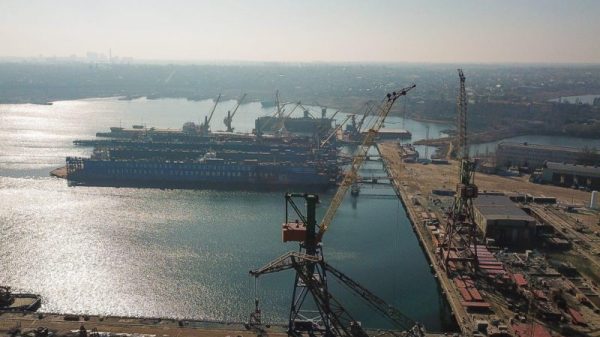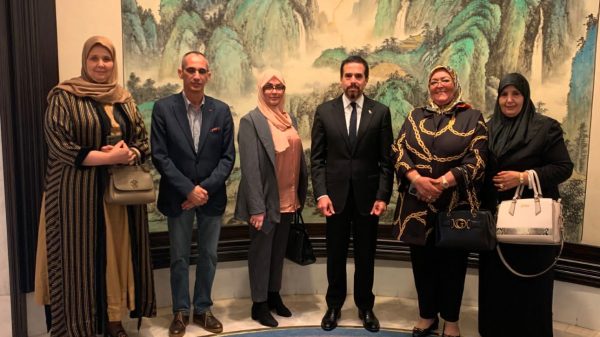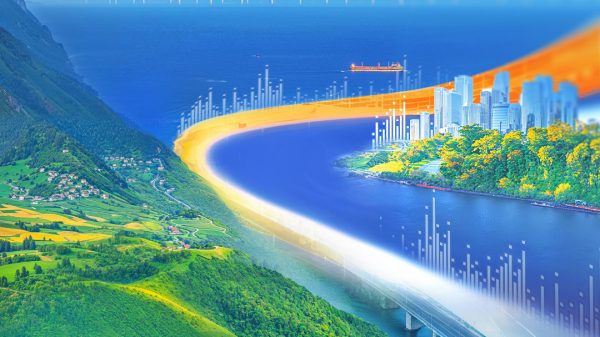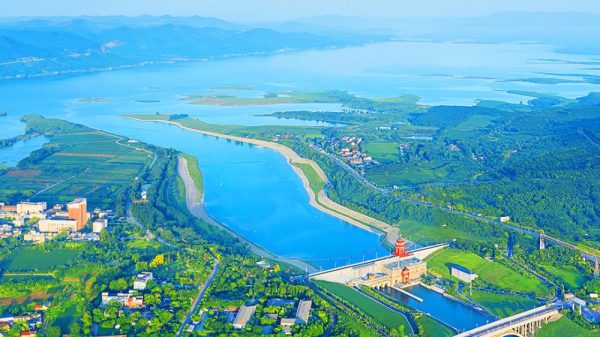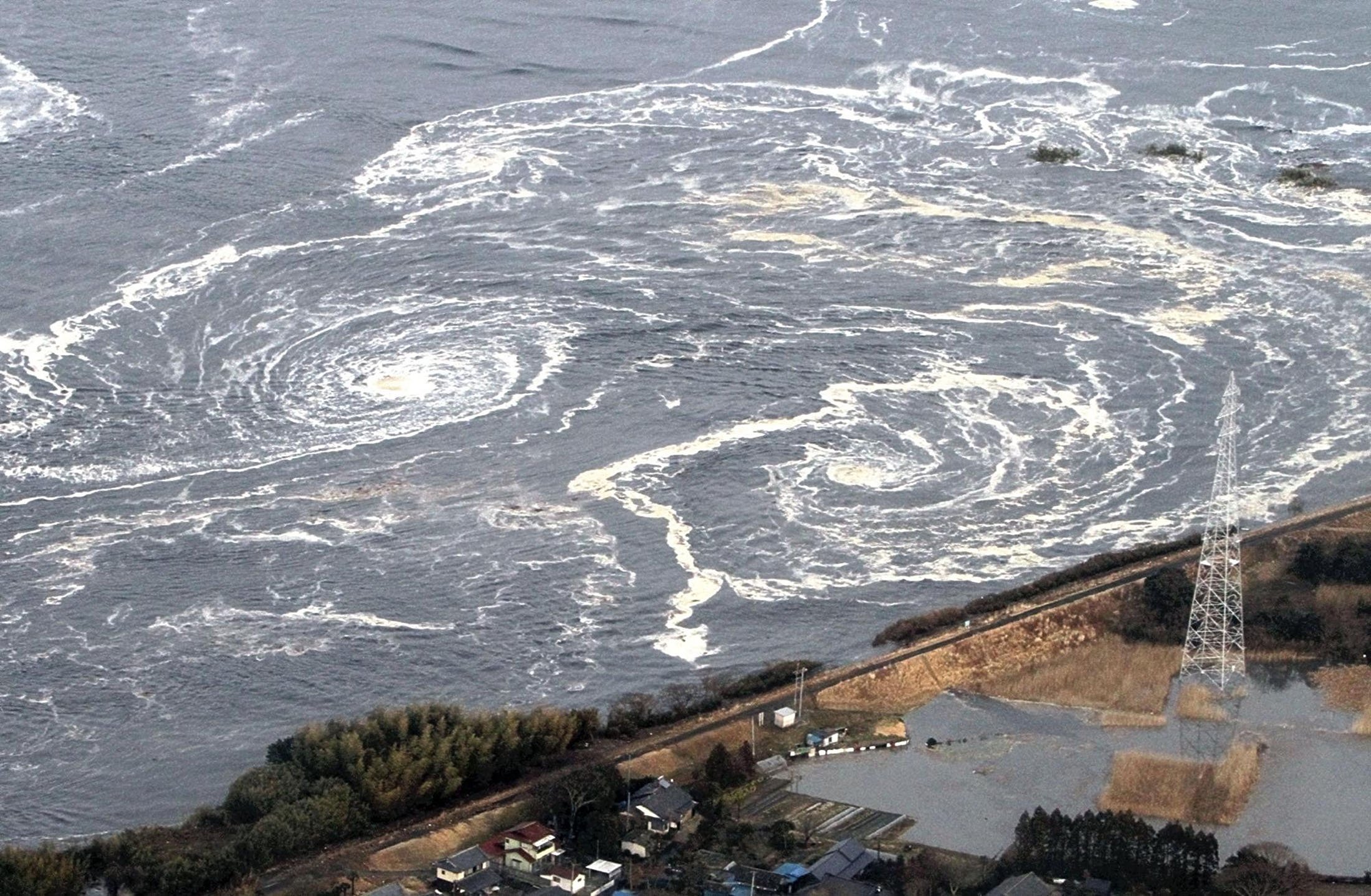Japan will start releasing treated radioactive water from the tsunami-hit Fukushima nuclear plant into the Pacific Ocean on Thursday, despite opposition from its neighbours.
In 2011, a tsunami triggered by a magnitude 9.0 earthquake flooded three reactors of the Fukushima Daiichi Nuclear Power Plant. The event is regarded as the world’s worst nuclear disaster since Chernobyl.
Shortly after, authorities set up an exclusion zone which continued to be expanded as radiation leaked from the plant, forcing more than 150,000 people to evacuate from the area. Some 1.34 million tonnes of water have accumulated since the 2011 tsunami destroyed the plant.
The plan to release water from the plant has caused alarm across Asia and the Pacific since it was approved by the Japanese government two years ago.
It was signed off by the UN’s nuclear watchdog in July, with authorities concluding the impact on people and the environment would be negligible.
But many people, including fishermen in the region, fear that discharging the treated water will affect their livelihoods.
A crowd of protesters in Tokyo on Tuesday also staged a rally outside the official prime minister’s residence, urging the government to stop the release.
INTERNATIONAL CONCERN FROM CHINA AND SOUTH KOREA
South Korea and China have already banned fish imports from around Fukushima, and in response to Tuesday’s announcement, Hong Kong said it would “immediately activate” import curbs on some Japanese food products.
The plan has caused uproar in neighbouring countries, with China the most vocal opponent. It accused Japan of treating the ocean like its “private sewer.”
In a recent EU Reporter article, “Japan’s discharge of nuclear-contaminated water poses serious risks to global marine environment and human health”, the Chinese Embassy in Belgium said:
“This is a serious violation of the legitimate rights and interests of neighbouring countries, a serious contravention of Japan’s international moral responsibility and obligations under international law, and serious damage to the global marine environment and the health rights of people around the world.”
It also said “. The Japanese side needs to take seriously legitimate concerns at home and abroad, honour obligations under international law, revoke the wrong discharge decision with a sense of responsibility for science, history, the global marine environment, human health and future generations, dispose of the nuclear-contaminated water in a science-based, safe and transparent manner, and accept strict international oversight.”
JAPAN RESPONDS TO INTERNATIONAL COMPLAINTS
In response Minister Okabe, of the Mission of Japan to the EU, told EU Reporter:
“Firstly, the Government of Japan will never discharge “nuclear-contaminated water” that exceeds regulatory standards into the sea. The water to be discharged from the Fukushima Daiichi Nuclear Power Station (FDNPS), which is damaged by the Great East Japan Earthquake, has been treated through the Advanced Liquid Processing System (ALPS), sufficiently purified until the concentration of radioactive materials other than tritium is below the regulatory standard, and then will be further diluted before it is discharged.
After the dilution, the concentration of tritium will be 1/40 of the regulatory standard set out by the Government of Japan and 1/7 of the WHO drinking water standard, and the concentration of radioactive materials other than tritium will be less than 1/100 of the regulatory standard. The assessment of radiological environmental impacts was conducted in line with international guidelines.
Secondly, in fact, since February 2022, the International Atomic Energy Agency (IAEA) and international experts (including Chinese/Korean/Russian/PIF countries experts) selected by the IAEA visited Japan and have conducted a series of “Safety Review” and a “Regulatory Review” on the ALPS treated water. As a result, on 4 July, the IAEA published its Comprehensive Report on the discharge of ALPS-treated water, summarizing the outcome of the review missions from an objective and professional standpoint based on scientific evidence.
In the report, the IAEA concluded that the approach to the discharge of the ALPS-treated water into the sea and associated activities are consistent with relevant international safety standards, and the discharge of the ALPS-treated water will have a negligible radiological impact on people and the environment.
We emphasize that the Government of Japan has not intervened in the conclusion of IAEA’s review report. During and after the discharge of the treated water, the IAEA Task Force, comprised of experts from the IAEA Secretariat and international experts from 11 countries including our neighbouring countries appointed by the IAEA; Argentina, Australia, Canada, China, France, Marshall Islands, Republic of Korea, Russian Federation, United Kingdom, United States, and Vietnam, will conduct corroboration of monitoring by TEPCO.
It is important to stress that the IAEA is an authoritative international organization in the field of nuclear energy. It has the authority to establish or adopt and apply international safety standards under Article III of the IAEA Statute and has developed these standards for the protection of health and the environment. The IAEA’s review of the safety of the ALPS treated water is based on the Statute of the IAEA. While some argue to dismiss the IAEA’s assessment, such discourse is nothing but an irresponsible move to challenge and undermine the authority of the IAEA, which is the underlying basis of the Treaty on the Non-Proliferation of Nuclear Weapons (NPT).
Finally, let me emphasize that the Government of Japan has repeatedly communicated with both domestic and international interested parties to gain their understanding. As for China especially, we have been requesting them to have a discussion on a scientific basis Also, the Government of Japan will publish monitoring information in a transparent and prompt manner while undergoing the review by the IAEA under the authority of the IAEA statute after the discharge commences.”
Japan will start releasing treated radioactive water from Fukushima nuclear plant into the Pacific Ocean on Thursday, despite opposition from other countries.





